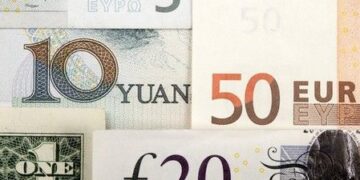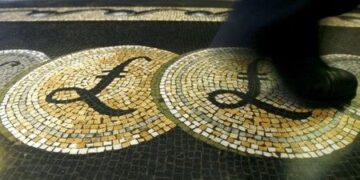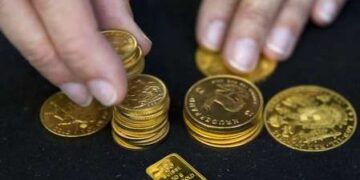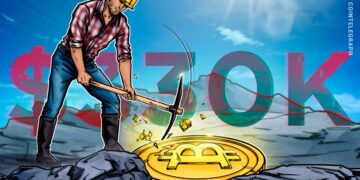HANNOVER (dpa-AFX) – “Welcome to friends”: With these words, German Chancellor Olaf Scholz addresses Canada at the start of the Hannover Messe. It is this year’s partner country at the world’s largest industrial show. Since the inauguration of US President Donald Trump, Canada has been confronted with the duties of its most important trading partner to date and is now looking for new partners in Europe at the trade fair.
“We stand by your side!” (German: “We stand by your side!”), said Scholz. “Canada has friends all over the world – and especially many of them here in Germany and Europe.” More uncertainty and more unpredictability, more tariffs and more fragmentation – this does not bode well for the vast majority of companies. “But I am convinced that we are not defenceless against these developments.”
“Hanover effect” instead of “America first”
Scholz made it clear: “If the USA leaves us no choice, as with the tariffs on steel and aluminum, we as the EU will react as one.” The answer to isolationism, tariffs and “America first” is: more free trade, more competitiveness and more technological sovereignty. “A look at the markets and exchange rates shows that we are not currently on the wrong track with our customs policy,” said Scholz. Trade wars are not really winnable, not even for the USA.
Europe’s motto in trade policy is: “We are open, but we are not naive,” said Scholz. We will continue to focus on free trade with as many partners as possible worldwide. Since the Canadian-European trade agreement CETA came into force in 2017 alone, trade in goods has increased by more than 50 percent. And Scholz is certain that trade in goods will soon continue to increase. “I call that the ‘Hanover effect’.”
Politics meets business and science
Around 4,000 exhibitors from more than 60 countries will be showcasing their innovations at the exhibition grounds from Monday, including 260 from Canada. Scholz will get an overview during the traditional Chancellor’s tour in the morning.
Next week, Hanover will be “the place to be”, said Siemens CEO Roland Busch in his speech at the opening ceremony. This is where politics meets business and science and new contacts are made. And all against the backdrop of a rapidly changing world. “And perhaps no other economy is more affected than the German economy.”
Reliability as Europe’s strength
Despite all the hurdles, Europe remains “a reliable economic region”, said Bertram Kawlath, President of the German Engineering Federation (VDMA). “People stick to the rules instead of throwing customs duties, trade barriers and sudden changes to legislation around and, in the worst case, ending partnerships.” This reliability is one of Europe’s greatest strengths.
This now also applies to a possible rapprochement with Canada. “The German economy has very close relations with Canada, and I am delighted that these relations are to be intensified in the coming days,” said Busch. “Against the backdrop of global political developments, it is all the more important to strengthen European-Canadian relations – both politically and economically,” said Kawlath. “Canada is a reliable partner that offers our companies great opportunities.”
Artificial intelligence will once again play a major role at the industrial show. The focus will also be on hydrogen, climate-friendly production and industrial transformation. Visitors from 120 countries are expected to attend. A year ago, 130,000 visitors came to the trade fair /fjo/DP/zb















